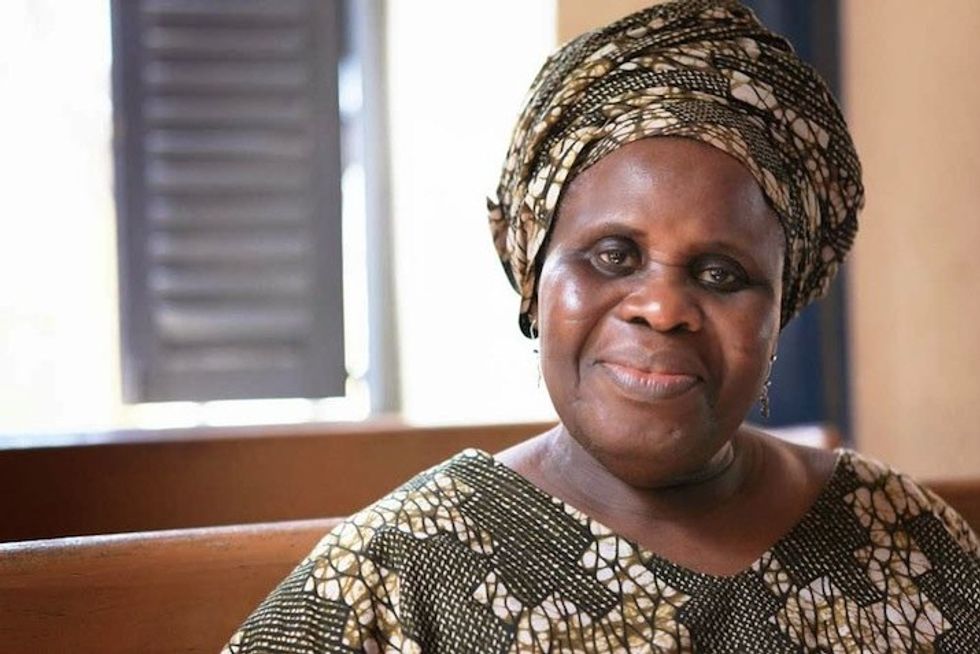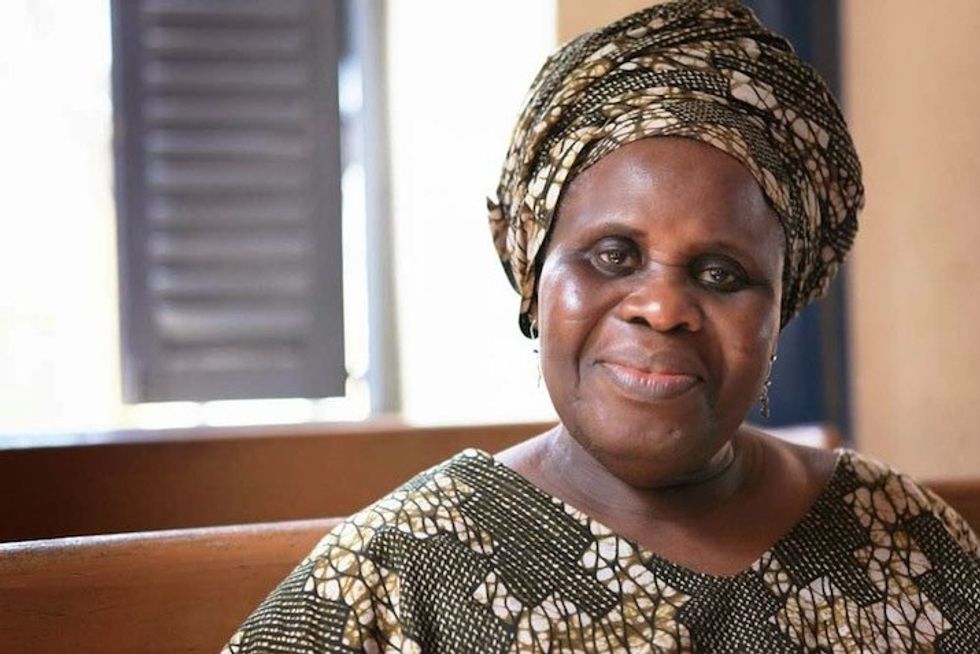Romance, Sci-Fi, Feminism & More At Africa Writes
Okayafirca recaps The Royal African Society's Africa Writes 2014 festival in London.

Photo of Ama Ata Aidoo
The Royal African Society's Africa Writes took place at the British Library in London from 11th to 13th July. The annual literary festival, which aims to promote contemporary English language literature from Africa and the diaspora, is considered a barometer of the current state of African literature and where it's heading.
One of the key discussions this year was the need to challenge the prominence of Literary Fiction. Bibi Bakare-Yusuf, of Abuja-based publishing house Cassava Republic, is launching Ankara Press in October, a romantic imprint which will showcase progressive African love stories. Bakare-Yusuf sees Romance Novels as the backbone of the publishing industry because their popularity with African readers makes them commercially viable. Notwithstanding this popularity, a number of African Romance writers self-publish because they see themselves outside the traditional literary world. For Bakare-Yusuf, the “cult of the genius” in Western literature has led to elitism in African publishing, with literary fiction being prioritised above other genres, something she sees as dangerous because of its potential to hinder growth in the industry.
African Science Fiction was another big topic. Although often associated with Western settings and audiences, there is a growing appetite for the genre on the continent. For Zimbabwean writer and publisher Ivor W. Hartmann, by leaving Science Fiction to the West, Africans are “letting other people write our future.” To counter this he published AfroSF, an anthology of Science Fiction by African writers. The anthology is available to download on Kindle, as Hartman sees the biggest penetration for Sci-fi as being in the digital sphere. This means African publishers increasingly have to focus on digital sales if they are to survive. However, recent developments such as the introduction of Paypal to Nigeria, will play a key role in easing the process of buying digital books on the continent.
Award-winning Science Fiction writer Geoff Ryman discussed the potential for speculative fiction as a tool for social change during a panel about the future of African fiction. He sees Science Fiction as way of inspiring the future Africans want to see. Ryman pointed out, for example, that much of the Science Fiction coming out of the continent focuses on depicting Africa as a centre for innovation. Writer and visual artist Tade Thompson suggested science fiction could be used as a political tool, either to go back to the past and allow Africans to retell history from their perspective, or by creating alternative worlds to deals with contentious social problems such as homophobia. By setting these stories outside of our everyday realities, they allow enough distance for the issues to be objectively assessed by the reader.
Travel writing was another exciting literary genre discussed at the festival. The eye-opening debate was chaired by Nigerian-born Fatimah Kelleher. Noo Saro-Wiwa, author of acclaimed travelogue Looking for Transwonderland, explained that travel writing can have different focuses, from looking at dance in different countries, to highlighting culinary discoveries through travel. British television presenter Andy Akinwolere, who has traveled extensively as a presenter for popular British children’s TV show Blue Peter, believed non-European perspectives in travel writing can offer knowledge only a different voice can bring.
“Quiet stories” were revealed as a key trend in literature of Africa and its diaspora. The short stories of this year’s Caine Prize nominees differed widely in terms of style and topic. What united them was their reluctance to tackle big political or social questions explicitly, opting instead for intimate depictions of the everyday lives and relationships of African characters. Through seemingly insignificant moments and mundane settings, each writer explored wider themes including grief, familial ties, coming of age, the media’s power over our opinions and the 2007 Kenyan post-election violence. This year's prize recipient, Kenya’s Okwiri Oduor's My Father's Head, is an exercise in understatement. Yet its emotional poignancy is undeniable.
Indeed the short story thrived at Africa Writes. It was everywhere, from the Caine Prize, to the book launch of Olabode Ogunlana’sThe Rare Leaf: Yoruba Legends & Love Stories, to Nigerian writer and advocate Chuma Nwokolo’s humorous and thought-provoking reading of a short story from his latest collection: How to Spell Naija, a commemorative anthology for Nigeria’s centenary.
Feminism was also widely discussed, through both a panel of female African poets on Friday and during the festival's headlining event, a discussion between Ghanaian author, poet, playwright and academic, Ama Ata Aidoo with Dr Wangui wa Goro. The renowned writer and feminist talked of her childhood and her body of work, including the seminal Changes: A Love Story, published in 1991 by the Feminist Press. With a professional female protagonist, the acclaimed novel dealt with difficult issues including polygamy and martial rape and confirmed Ata Aidoo’s status as one of foremost feminist voices on the continent.
The event was a revelation in terms of the breadth and variety of the literature of Africa and its diaspora. Doubtless there are still many challenges for African writers and publishers. Distribution, the difficulty of small publishers to gain access to Western markets, the price of paper, all hinder the growth of the publishing industry. However, these are problems the publishing industry faces the world over. If Africa Writes is anything to go by, there is no shortage of zeal on the continent to come up with innovative and novel solutions. As summed up by Geoff Ryman: "The future is yours if you want it!"


